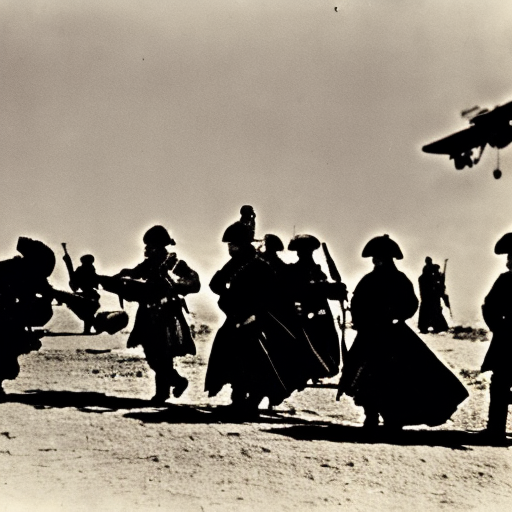The Opium Wars: A Brief Summary
The Opium Wars were a series of conflicts between China and Western powers in the mid-19th century, primarily over the trade of opium. These wars had a profound impact on China’s relationship with the West and its internal affairs.
The First Opium War (1839-1842)
The First Opium War began when the Chinese government attempted to suppress the illegal opium trade conducted by British merchants. In response, the British launched a military campaign to protect their economic interests. The superior firepower of the British navy and their modern military tactics quickly overwhelmed the Chinese forces. The Treaty of Nanking, signed in 1842, marked the end of the war. It forced China to cede Hong Kong to the British, open five ports to foreign trade, grant extraterritorial rights to British citizens, and pay a large indemnity.
The Second Opium War (1856-1860)
The Second Opium War erupted when tensions between China and Britain escalated over issues such as the mistreatment of British merchants and the seizure of a British-registered ship. The war expanded to involve other Western powers, including France and the United States. The Western forces again proved to be militarily superior, capturing Beijing in 1860. The Treaty of Tientsin, signed in 1858, and the subsequent Beijing Convention in 1860, imposed further concessions on China. These included the legalization of the opium trade, the opening of more ports to foreign trade, and the establishment of diplomatic missions in Beijing.
Causes and Consequences
The Opium Wars were primarily driven by economic interests. The British, in particular, sought to address their trade imbalance with China by exporting opium, which was highly addictive and in high demand. The Chinese government’s attempts to suppress the opium trade were seen as a threat to British economic interests, leading to military intervention.
The wars had far-reaching consequences for China. The unequal treaties imposed by the Western powers undermined China’s sovereignty and control over its own affairs. The opium trade devastated Chinese society, leading to widespread addiction and social problems. The wars also exposed the weaknesses of the Qing Dynasty’s military and administrative systems, contributing to a decline in its authority and the eventual collapse of the imperial system.
Legacy
The Opium Wars marked a turning point in China’s relationship with the West. They highlighted the technological and military superiority of the Western powers and the vulnerability of China’s traditional institutions. The wars also sparked a wave of anti-imperialist sentiment and nationalist movements in China, as intellectuals and reformers sought to modernize the country and resist foreign domination.
The Opium Wars also had a significant impact on global trade and diplomacy. The unequal treaties imposed on China set a precedent for Western powers to exert economic and political influence over weaker nations. The wars also contributed to the rise of imperialism in Asia and the scramble for concessions and spheres of influence.
In conclusion, the Opium Wars were a series of conflicts between China and Western powers in the mid-19th century, primarily driven by economic interests and the trade of opium. The wars resulted in significant concessions and humiliations for China, undermining its sovereignty and contributing to the decline of the Qing Dynasty. The Opium Wars also had broader implications for global trade and diplomacy, setting the stage for further Western dominance and the rise of imperialism in Asia.












